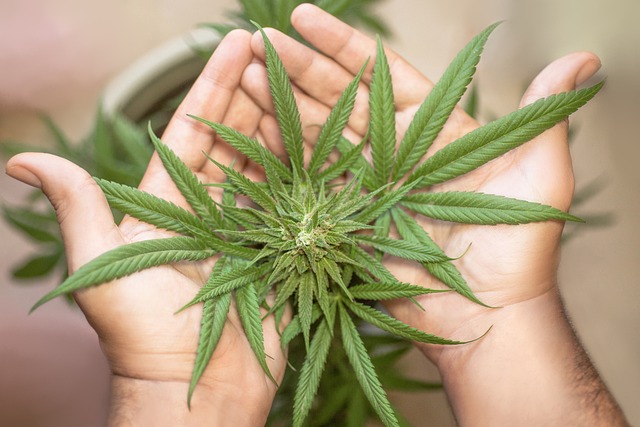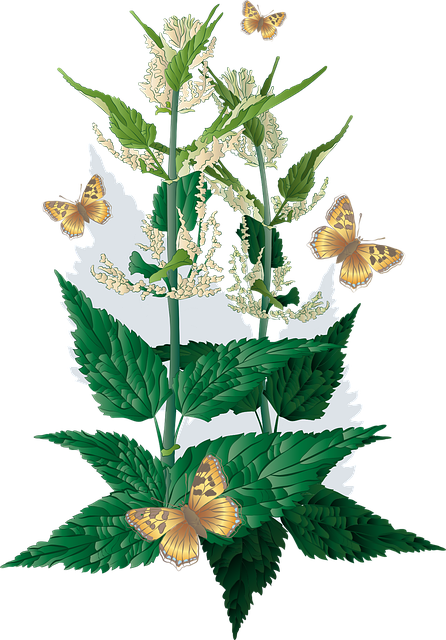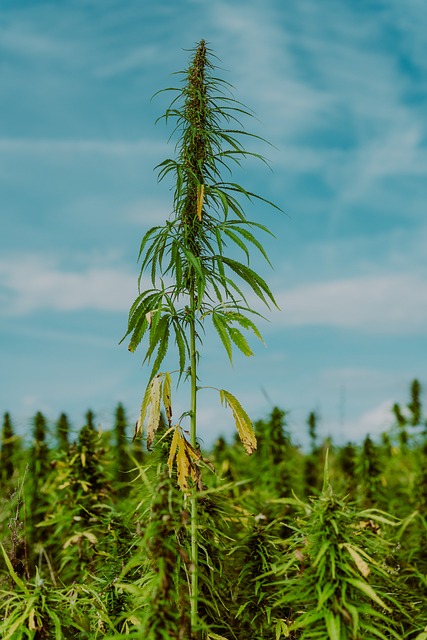2023 marked a significant year for THCA (Tetrahydrocannabinolic Acid) flower's rise in Oregon, as it became increasingly recognized for its therapeutic benefits and non-intoxicating nature. THCA, the precursor to THC, gained traction due to its legal status in Oregon, offering potential health advantages without the psychoactive effects of cannabis. The state's progressive regulations and conducive climate have fostered a thriving market for THCA flower, encouraging research into its anti-inflammatory, pain-relieving, and stress-reducing properties. These findings position THCA flower as a health-conscious alternative to conventional pharmaceuticals, aligning with the growing preference for natural remedies. Oregon's commitment to innovation in wellness has been instrumental in advancing the understanding and accessibility of THCA, which is legal in Oregon, contributing positively to the overall well-being of its residents. The state's clear legal framework, including guidelines from the Oregon Health Authority and enforcement by the Oregon Liquor Control Commission, supports the cultivation and use of THCA-rich cannabis flowers, reflecting a balance between public health protection and embracing the potential therapeutic benefits of THCA. With its optimal growing conditions, Oregon is well-positioned to lead in the cultivation of THCA-rich cannabis for both personal use and health-focused applications.
Explore the emerging wellness phenomenon of THCA flower and its growing recognition as a beneficial addition to health and wellbeing routines, particularly within the cannabis-friendly state of Oregon. This article delves into the multifaceted aspects of THCA (Tetrahydrocannabinolic Acid), its legal status under Oregon’s regulations, and the scientifically backed potential health benefits it offers. From cultivation practices tailored to Oregon’s unique climate to understanding how to activate its healing properties through decarboxylation, we provide a comprehensive guide for both novice and experienced users. Join us as we unravel the intricacies of THCA flower, its role in complementary and alternative medicine, and how it compares to other cannabinoids, ensuring you have the knowledge to make informed decisions about this wellness staple legally available in Oregon.
- Unveiling THCA Flower and Its Emergence as a Wellness Staple in Oregon
- The Science Behind THCA: Potential Health Benefits
- THCA Legal Status: A Comprehensive Look at Oregon's Regulations
- Cultivation Corner: Growing THCA-Rich Flowers in Oregon's Climate
Unveiling THCA Flower and Its Emergence as a Wellness Staple in Oregon

2023 has seen a significant rise in the prominence of THCA (Tetrahydrocannabinolic Acid) flower as a wellness staple within Oregon’s burgeoning health and wellness sector. As regulations have evolved, THCA, which is the raw and non-psychoactive precursor to THC (Tetrahydrocannabinol), has emerged as a preferred choice for individuals seeking the potential therapeutic benefits of cannabis without the intoxicating effects. In Oregon, where THCA flower is legal, it has been recognized not only for its medicinal properties but also for its versatility in various wellness routines. The state’s progressive approach to cannabis regulation has allowed for a robust market where consumers can access THCA flower legally, fostering an environment where research and development can flourish. This has led to a growing body of evidence supporting the use of THCA flower for its potential anti-inflammatory, pain-relieving, and stress-reducing effects, making it a popular alternative to traditional pharmaceuticals among Oregon’s health-conscious populace. The emergence of THCA flower as a wellness staple is a testament to the state’s commitment to exploring innovative natural remedies and its dedication to providing safe, legal access to these compounds for the betterment of overall well-being.
The Science Behind THCA: Potential Health Benefits

delta-9-tetrahydrocannabinolic acid (THCA) is the non-psychoactive precursor to the well-known compound delta-9-tetrahydrocannabinol (THC), found in cannabis plants. While THCA itself does not produce psychoactive effects, it holds potential therapeutic benefits that are currently under scientific investigation. Preclinical studies suggest that THCA may possess anti-inflammatory, anti-nausea, anti-emetic, and neuroprotective properties. These potential health advantages have led researchers to explore its efficacy in managing various conditions such as chronic pain, inflammation, and certain neurological disorders. In this context, it’s worth highlighting that THCA legal status in Oregon allows for the exploration of these benefits within a regulated framework, providing an opportunity for both scientific study and consumer access to THCA-rich products derived from legally compliant cannabis strains. The interest in THCA stems from its interaction with the body’s endocannabinoid system, which plays a role in regulating a range of physiological processes, including pain, immune response, and mood. As such, the cultivation and production of THCA flowers in Oregon, where the legal landscape is favorable, have become focal points for both medical research and potential wellness applications.
THCA Legal Status: A Comprehensive Look at Oregon's Regulations

In the state of Oregon, the legal status of THCA, or tetrahydrocannabinolic acid, has been a subject of interest and clarification within its comprehensive cannabis regulations. Unlike its decarboxylated form, THC, which is well-known for its psychoactive properties, THCA exists in raw cannabis plants and flowers and does not induce intoxication. Oregon’s laws reflect a nuanced approach to both medical and adult-use cannabis, with specific provisions addressing the presence of THCA. The Oregon Health Authority outlines clear guidelines that recognize THCA as a legal compound within the state’s cannabis framework. This recognition is significant for consumers and producers alike, as it allows for the production, sale, and use of raw cannabis flowers containing THCA legally, provided they comply with the state’s licensing and labeling requirements.
The Oregon Liquor Control Commission (OLCC) plays a pivotal role in regulating adult-use cannabis, including THCA products. The OLCC’s regulations stipulate that possessing, selling, and gifting of cannabis flowers with higher than permissible levels of THCA are subject to the same rules as those for THC. This means that while Oregonians have the freedom to cultivate, sell, and consume cannabis in various forms, they must adhere to strict testing and labeling protocols to ensure consumer safety and compliance with state laws. The state’s regulatory framework is designed to provide clarity and safeguard public health while accommodating the growing interest in THCA’s potential wellness benefits.
Cultivation Corner: Growing THCA-Rich Flowers in Oregon's Climate

In the lush, verdant landscapes of Oregon, cultivating THCA-rich flowers has become a focus for both horticultural enthusiasts and those interested in the potential therapeutic properties of cannabinoids. With the legal status of THCA clearly defined in Oregon, where it is permissible for adults to possess and cultivate cannabis for personal use, growers have an opportunity to explore the cultivation of THCA-rich plants. The climate of Oregon, characterized by its diverse microclimates, provides a suitable environment for the growth of these flowering plants. The key to successful cultivation lies in understanding the specific environmental requirements of THCA-rich strains, which often favor a Mediterranean-like climate with moderate temperatures, adequate sunlight, and consistent moisture levels.
To maximize yields of THCA-rich flowers, Oregonian growers should consider selecting strains that are known to contain high levels of THCA in their raw form before decarboxylation—a process that converts THCA into the more psychoactive THC. Employing organic growing practices and soil amendments can enhance the potency and quality of the flowers. Additionally, growers must adhere to state regulations regarding cultivation, ensuring that they are operating within the bounds of the law to avoid any legal complications. With careful attention to the plant’s needs and a deep understanding of Oregon’s unique climate, cultivators can successfully harvest THCA-rich flowers that offer potential health benefits while remaining compliant with local laws.
ithCA (Tetrahydrocannabinolic Acid) flower has garnered significant attention within the wellness community, particularly in Oregon. As the state continues to pave the way for its legal status, it’s clear that THCA’s potential health benefits are a driving force behind its growing popularity. The scientific community has been exploring these benefits, revealing promising properties that may contribute to various aspects of well-being. Oregon’s favorable climate and regulatory framework have made it an ideal setting for the cultivation of THCA-rich flowers, ensuring that those interested can access this natural resource responsibly and legally. As this market continues to mature in Oregon, it’s evident that THCA flower will remain a staple in health-conscious consumers’ routines, with ongoing research expected to shed further light on its numerous advantages.
